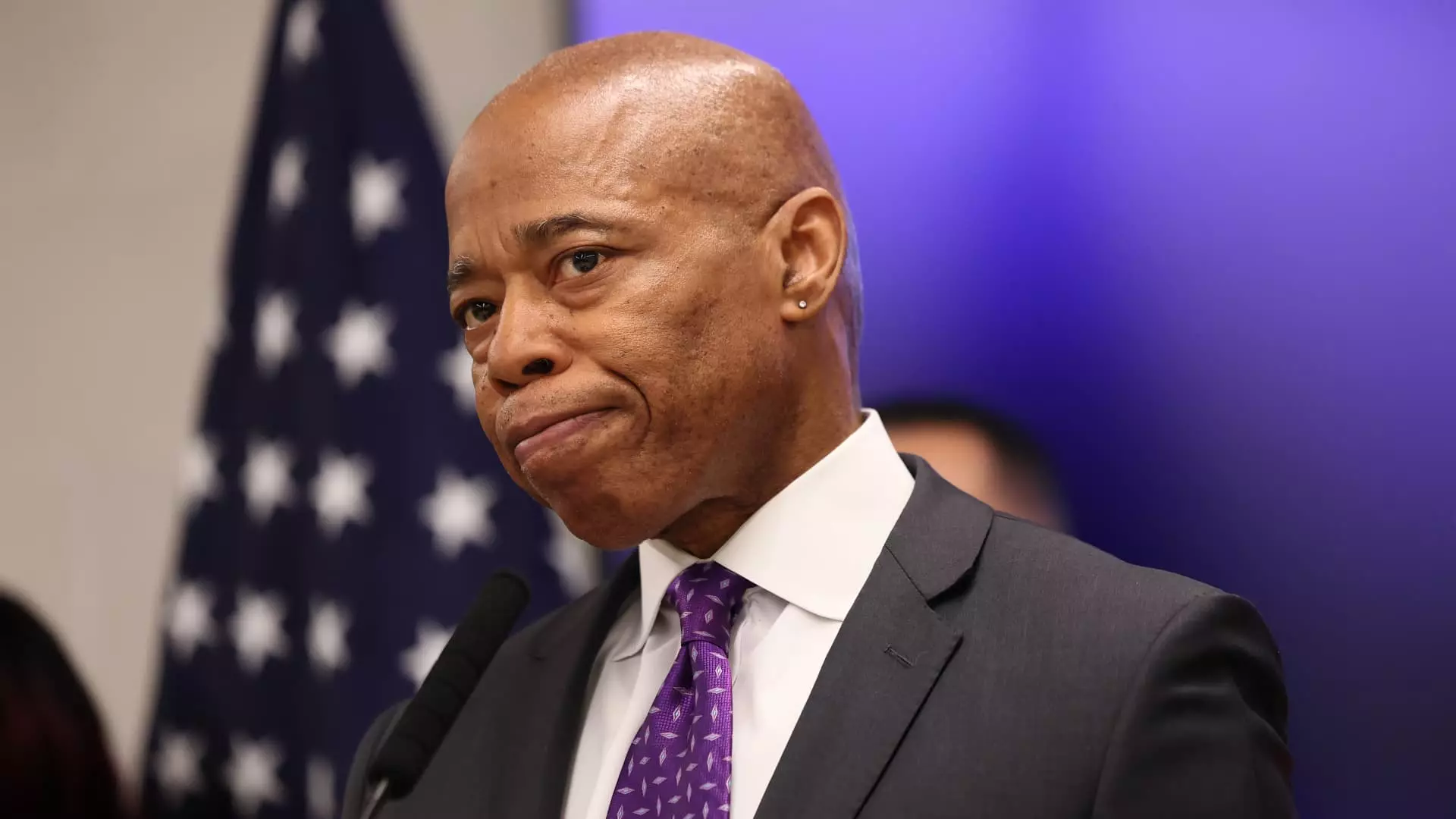In the midst of a tumultuous political climate, New York City Mayor Eric Adams finds himself entangled in a precarious legal situation as allegations of criminal corruption loom. The mayor’s legal team has taken a firm stance, pushing for a complete dismissal of the case against him, citing numerous concerns regarding the conduct of prosecutors and the validity of the charges he faces. The outcome of this case not only impacts Adams personally but has significant implications for the integrity of the justice system and the political landscape of the city.
Prosecutorial Misconduct: Allegations and Defense
Adams’s attorneys have raised serious allegations of misconduct on the part of federal prosecutors. A particularly contentious aspect involves a leaked letter from former Acting Manhattan U.S. Attorney Danielle Sassoon, which allegedly conveys a presumption of Adams’s guilt and suggests the pursuit of additional charges against him. The defense argues that this letter, which hints at a potentially corrupt bargain between the Department of Justice (DOJ) and Adams, illustrates a significant overreach and a lack of due process. By labeling the case as “meritless,” Adams’s lawyers, Alexandra Spiro and William Burck, are indicating that the foundation upon which these charges rely is both shaky and improper.
The implications of such accusations are profound. When an individual in a position as significant as the mayor’s becomes the center of legal scrutiny, public trust in both the justice system and governmental institutions can be severely undermined. This situation has prompted widespread discussion concerning the ethical obligations of prosecutors and their duty to maintain transparency and fairness during investigations.
The leakage of Sassoon’s letter not only complicates the legal proceedings but raises ethical questions about the motivations behind such disclosure. Adams’ legal team claims that this leak was executed by a government insider and is indicative of a larger pattern of misconduct aimed at clouding the mayor’s defense. The ramifications of leaking sensitive legal documents can skew public perception and ultimately prejudice the case against Adams before it even reaches a courtroom. The assertion that this tactic is merely a desperate measure on the part of prosecutors to salvage an unwarranted case adds an additional layer of complexity to the ongoing narrative.
Moreover, the media’s role in amplifying these allegations cannot be overlooked. Reporting on corruption cases often leads to public shaming and scrutiny that can linger long after the legal proceedings conclude. Therefore, the integrity of such investigations not only relies on the prosecutorial process itself but also on the influences that surround it.
As the case navigates its way through the judicial system, the decisions made by Judge Dale Ho will be pivotal. His choices regarding whether to dismiss the charges “with” or “without” prejudice will determine the future trajectory of the case. A dismissal with prejudice would effectively shield Adams from any future attempts to prosecute on the same allegations, while a dismissal without prejudice would leave the door open for the DOJ to refile charges later on.
This potential outcome puts immense pressure on the court and raises questions about how justice is balanced against political accountability. The nature of this legal battle indicates a larger fight over the principle of prosecutorial discretion and its boundaries. So, the unfolding events not only impact Adams personally but carry wider implications for the political power dynamics in New York City.
The ongoing legal maneuvers by Mayor Eric Adams and his team paints a vivid picture of the intersection between law and politics in contemporary America. As they argue for a dismissal rooted in prosecutorial misconduct, the stakes continue to rise, underscoring the complexity of navigating corruption allegations against a sitting mayor. Whether this case serves as a cautionary tale against the pitfalls of political ambition and judicial conduct remains to be seen. The critical takeaway is that the integrity of both our legal system and elected officials rests upon the fidelity to truth, transparency, and the unwavering pursuit of justice.


Leave a Reply